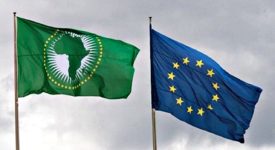Development projects and aid operations of the European Union throughout the developing world are going to be hit by a funding shortfall of about 400 million euros. Unless immediate actions are taken by the EU28 leadership, many NGOs will be unable to sustain their projects which will lead to global job losses already in July this year.
This gap in the development budget is the result of a mismatch between the amounts of money that EU member states have already promised to finance and what they have really delivered by now under the new EU budgetary framework for 2014-2020. According to Walter Schwarzenbrunner of the EU’s Humanitarian and Civil Protection directorate, the situation has become truly critical. He says that the non-profit sector must work hard on finding a way to acquire institutional reinforcement of 400 million euros out of which 150 million must be delivered before the summer in order to avoid a crisis. So far, there have been ongoing efforts to limit the shortage of finance by prioritizing core operations and postponing new payments to small non-profit operations in the most vulnerable regions, such as drought-prone Sahel.
As the EU’s solution to the financial gap is not yet set, NGOs have prioritized life-saving projects in order to prevent a potential humanitarian crisis. As the EU Commission might still propose new solutions in May this year, Mr Schwarzenbrunner believes that grave scenarios will not materialize. He added that the need to refill the fund was really crucial because without core funding, even operations in war-torn Syria, South Sudan, and the Central European Republic will be seriously disrupted. Brussels ensured though that the financing for humanitarian causes will be secured in any case.
The European Union is the world’s most generous donor of development assistance. The EU28 provides about 50 percent of the world’s humanitarian aid via international organizations such as UN agencies, Red Cross/Crescent, and numerous NGOs. According to surveys and polls, relief missions from Haiti and Colombia have proved to be the EU’s most popular missions.
Article Categories:
INSTITUTIONS & POLICY-MAKING






